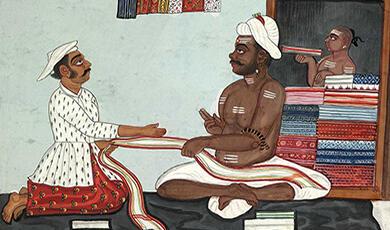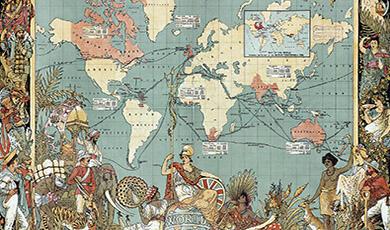Press release: Who Benefited from the British Empire?

Did Britain drain India's wealth? Deeply contested debates have a long history
“Current debates do not reflect some ‘woke’ war on our heritage. On the contrary, the controversy is intrinsic to our heritage”
Embargo: 04 April 2023 7pm
We would like to invite you to a lecture by economic historian Professor Martin Daunton on Who Benefited from the British Empire? on 04 April 2023.
This is the final lecture in Economic Historian Professor Martin Daunton’s Gresham lecture series Britain’s Empire and the Economy, in which he considers the role of the Empire in the growth and development of the British economy. The debates around these were deeply contested in the past between slave owners and abolitionists, between critics and defenders of British rule in India – and they remain controversial in the present.
In this lecture, Professor Martin Daunton explores the history of British Empire and asks who benefited from it? Daunton considers the politics of imperial relations between the ‘mother country’ Britain and colonies, and the dynamics within both, challenging long held and more recent arguments.
He will say: “the costs and benefits of the British Empire have always been disputed, within Britain as well as in the colonised areas. Current debates do not reflect some ‘woke’ war on our heritage. On the contrary, the controversy is intrinsic to our heritage.”
Daunton will begin by exploring the arguments of Dadabhai Naoroji, the first Indian MP in Britain, which were published in 1901. Naoroji’s arguments that the British Empire inflicted upon India “the triple evil of depriving the people of Wealth, Work, and Wisdom” continue to shape the discourse today. The way it worked, Naoroji suggested, was “destructive and despotic to the Indians and un-British”.
At the same time another argument emerged from John Hobson. Hobson argued that imperialism was caused by and entrenched poverty within Britain. In his view, imperialism benefitted a particular group within Britain. He described ‘two Englands’ in which empire benefited southern English bankers, landowners and officials rather than northern industry and workers.
Daunton explores and unpicks these two contemporary arguments which have been widely accepted by modern historians. However, Daunton explains that these arguments offer too simple an answer to the question of who benefited from the British Empire. Rather, he argues that more attention needs to be paid to the shifting imperial relations between Britain and its colonies, and the internal dynamics within both.
Did the empire benefit wealthy landed aristocrats in Britain and financiers of the City of London, or did it create employment and cheap goods for British workers? What was the impact on different parts of the empire, and different social groups, as they were drawn into a global economy?
Globalisation or imperialism?
He will say “to many commentators at the time, and to modern historians, the question is whether we can separate British imperialism and the emergence of a highly globalised economy in the long nineteenth century…could Britain have secured any benefits from a globalised economy without engaging in formal imperialism which increased defence costs? There were different views at the time that continue to be fought among historians.”
Exploring these arguments, Daunton disagrees with the likes of Niall Ferguson and will say “globalisation did involve power, not necessarily through formal rule but through the power of capital and defence; and the result was to change the relationship between the ‘core’ of industrial countries and the ‘periphery’ that became the suppliers of food and raw materials.”
Daunton will finish by asking whether the Empire had a future after 1945. He will conclude by saying “by the end of the Second World War, it was clear that India would soon be independent – the costs were too great. Nevertheless, the debates over the role of the empire continued...”
ENDS
Notes to Editors
You can sign up to watch the hybrid lecture online or in person; or email us for an embargoed transcript or speak to Professor Daunton: l.graves@gresham.ac.uk / 07799 738 439
Read more about Professor Daunton.
Sign up to our monthly newsletter here to get advance notice of our events.


 Login
Login


